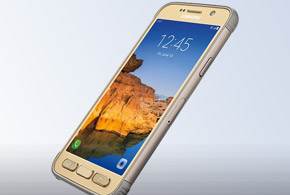All Galaxy Note7 smartphones will be replaced after 35 battery explosions or fires were reported by users around the world.
Samsung is recalling all of its new Galaxy Note7 smartphones following at least 35 incidents of battery explosions or fires around the globe. The phones, which went on sale Aug. 19 in the United States, are the company’s premier flagship handsets, incorporating a 5.7-inch quad HD dual-edge Super AMOLED touch-screen display and a pen stylus that lets users add drawings and handwritten text to images, documents and more.
The consumer electronics company announced a global recall of all of its Galaxy Note7 large smartphones that have been sold so far and that are in distribution channels in a Sept. 2 statement.
“Samsung is committed to producing the highest quality products and we take every incident report from our valued customers very seriously,” the company said. “In response to recently reported cases of the new Galaxy Note7, we conducted a thorough investigation and found a battery cell issue.”
As of Sept. 1, “there have been 35 cases [of battery fires or explosions] that have been reported globally and we are currently conducting a thorough inspection with our suppliers to identify possible affected batteries in the market. However, because our customers’ safety is an absolute priority at Samsung, we have stopped sales of the Galaxy Note7.”
Samsung said it will “voluntarily replace” Note7 handsets for all customers who already have them with a new Note7 device over the coming weeks. “We acknowledge the inconvenience this may cause in the market, but this is to ensure that Samsung continues to deliver the highest quality products to our customers. We are working closely with our partners to ensure the replacement experience is as convenient and efficient as possible.”
Samsung did not respond immediately to several eWEEK inquiries for more information about the recall, including an estimate of how many Note7 smartphones are in the hands of consumers around the world and how many are in stores or warehouses waiting to be sold. The company also did not give additional details about the “battery cell issue” that led to the recall.
The Note7 battery problems came to light Aug. 31 when Samsung moved to halt shipments of the phones after battery explosion and reports were first received in Korea, according to an earlier eWEEK story. Samsung told eWEEK initially that it was looking into the reports it had received and was “conducting a thorough inspection” of the phones and batteries. “We will share the findings as soon as possible,” the company said in its statement.
It is not known if there have been any incidents of battery explosions or fires in Note7 handsets in other countries, including the United States.
Charles King, principal analyst with Pund-IT, told eWEEK that Samsung’s move to quickly recall and replace the phones is the right call.
“Samsung should be applauded for moving so decisively to halt sales,” said King. “It’s far better to move quickly, fix the problem and suffer a short-term loss of sales than to dither and delay, and thus risk a significant injury to the company’s reputation and brand.”
The recall “is obviously a significant and likely costly disappointment” for the company, wrote King. “No company likes recalls but they’re especially painful when they impact flagship products, like the Note7.”
Tuong H. Nguyen, an analyst with Gartner, agreed that Samsung acted correctly in ordering the recall swiftly, but added that the battery problems could become a lingering concern with consumers.
“It’s too early to tell how widespread of an issue this is,” wrote Nguyen, but “this potentially has a longer term impact on their brand image. For example, whether it’s 3 months or 3 years from now, will I, as a consumer, be reluctant to buy a Samsung phone because I remember this? Or will I not even remember it, or dismiss it as a one-off, or overblown issue?”
In addition, since the Note7 is a flagship phone for Samsung, consumers could also worry about future quality concerns, he said. “As a consumer, you expect high-end stuff to be high-quality and defect-free because that’s what you’re paying for. If this is happening on the high-end, what should I, as a consumer, think about the other products? I’m not saying this line of thinking is validation in itself, but this is a potential impact because it’s a plausible line of thinking for average consumers.”
Since Samsung is the world’s leading smartphone vendor by sales, the company “can’t blame third-party shoddy products for this [problem],” said Nguyen. “It’s 100 percent on them. Maybe that’s why they were quick to get on top of this situation.”







